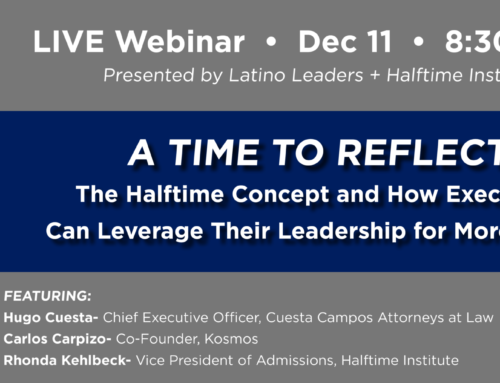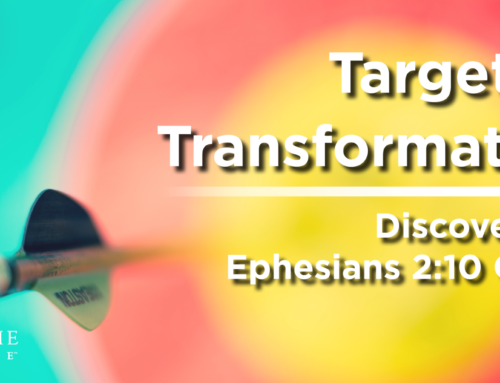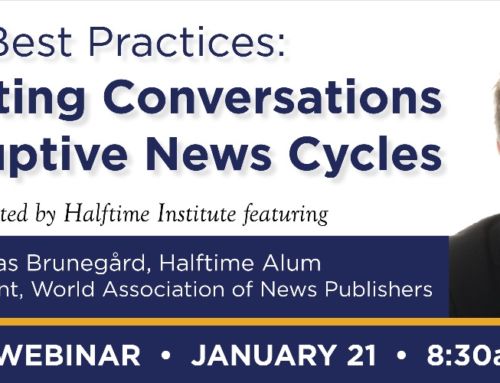We’ve all heard the story of David and Goliath. David was an afterthought in everyone’s mind when he showed up with his slingshot and his five smooth stones. What happened next has lived on in legend for many centuries and will continue to live on for many reasons. I think one of those is the powerful question that David asked of his brothers and those who stood nearby, cowering in Goliath’s shadow and presence: Is there not a cause?
Notice that David didn’t ask to see a battle plan or a vision or mission statement, or even the short-term success strategy. David’s question simply pierces to the heart of everything: “Is there not a cause?”
As it happens, the question is rhetorical. David knows the cause. He’s fixed on it. It’s about to take him to his sweet spot, the thing that God had created him to do.
Answering that question forces us to evaluate everything we are doing and everything that we are not doing to get to what truly matters.
Let me share another “Is there not a cause?” story, one that I know well:
In a Chicago skyscraper, in a fortieth floor office, a man at a large polished desk stares through plate-glass windows at Lake Michigan. He’s thinking that he’s worked all his adult life to get to this address or one like it. In the past he felt good about the title, the work, the status, the perks. Now the hole in him dwarfs all that.
After years of promotions, memberships, and big toys; after years of exclusive seating and private access; the latest business books and first-class flights; lunches and dinners and right people in top addresses; hard workouts, costly clothes, power haircuts. . . after decades on the up escalator . . .The man is thinking: If I died today, so what? And the man is me. And if you’d asked me then, in 2005, “Is there a cause?” you would have gotten the blank stare I most often aimed at Lake Michigan.
At that time I had no mental category for “cause.” My ledger headings were achievement, good times, possessions, money, appearances. Aren’t life skills for personal gain? But personal gain, for me, was falling short of personal fulfillment.
I saw no giant. I had no cause.
My wife and I had become Christians, ostensibly to be followers of Christ and His mission. As our faith deepened, we began to question our priorities, and our appetite for stuff was waning. By 2007 we would be downsized from multiple homes. (This feels ridiculous to say now.) I had made a church mission trip to Africa, where headline words like poverty, hunger, and AIDS fade into individual people, real pain, great need. That same year, in November, my wife, Lisa, took a similar trip.
You know the flywheel effect? Jim Collins talks about it in his book Good to Great. The flywheel is the part of an engine that spurs momentum. At first you move it, but at some point internal changes acquire their own energy. By spring 2008, my spiritual flywheel had kicked in.
One evening Lisa and I had friends over to show them the Africa project and to talk about the need. Remembering the scene can still make me wince. In our magazine-spread living room, we set out pictures of little faces and bloated stomachs and protruding ribs. Pictures showing young Africans with stumps for limbs and flies buzzing around crusty noses. You might say Lisa and I were still with the Israelites. Still standing in the crowd of soldiers. We were asking questions. We had viewed the giant. We knew there was a mission tailor-made for us but we had not yet acted upon it.
In our minds, David’s question kept ringing: “Is there not a cause?”
That night after everyone left Lisa and I prayed together. Nothing elaborate. We told God we thought we could use our resources to start an orphanage in Africa. We said he’d need to help us sell our home. He took us at our word and answered our request: In thirty days we closed on our home in a cash transaction.
In 2010 the orphanage opened for operation, and that year we closed out my financial business. That year I also stepped in as managing director of the Halftime Institute.
Here’s what I learned. Once you ask yourself, “Is there not a cause?” you can never go back. You will find the answer to that question, and once you do, you’ll have to act upon it.
And, when you act upon it, you’ll make a remarkable discovery that I and my Halftime associates and alumni have discovered: It will be the greatest time of your life, a time that no toys, no corner office, and no bank account can match.
Your act of obedience to the cause may not be selling your home, it could be something small. Obedience is obedience. The point is to take a step in the direction that you need to go in. Even when it is hard, it always brings more peace when our lives come into greater alignment with our core values.
If you want a great place to start, make sure you’re clear on your core values. I enlisted the help of a Halftime Coach (I still do!), and the process of coaching helped me and my family discover our core values and develop a plan to live them in our day to day.






